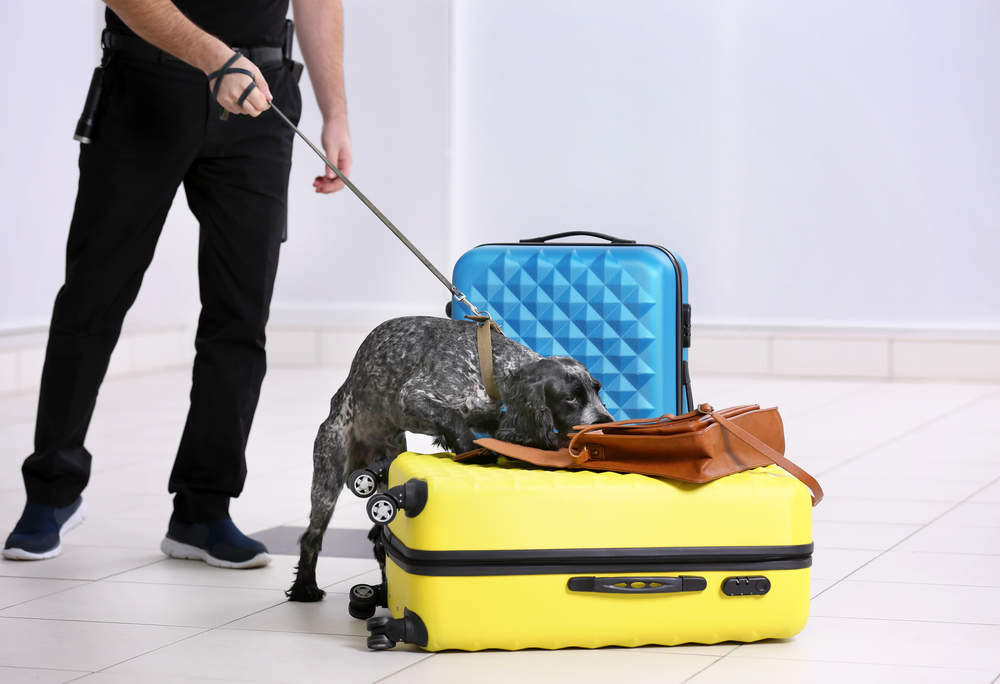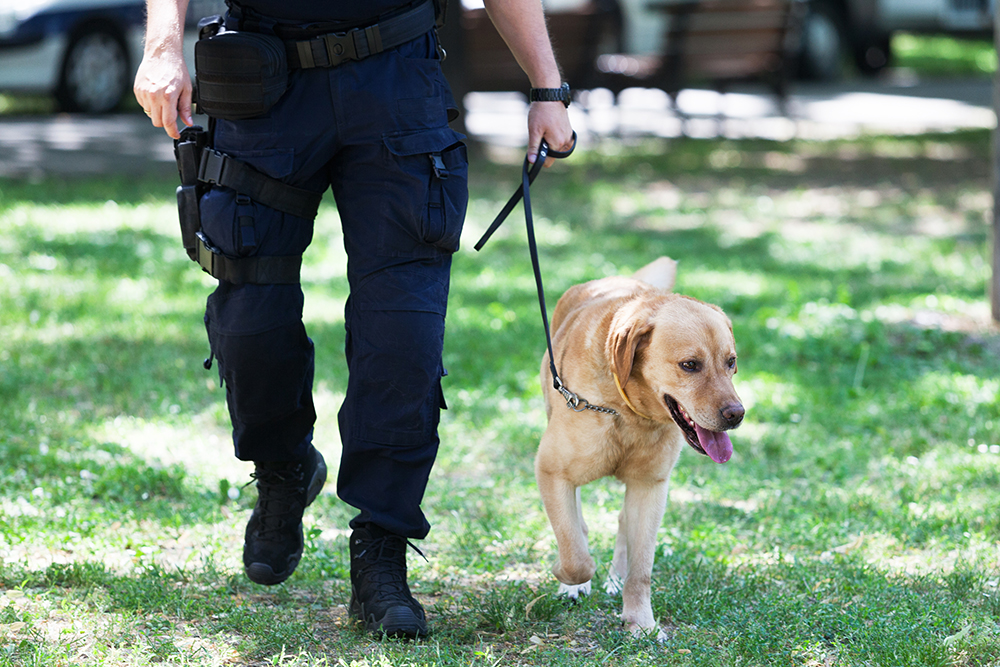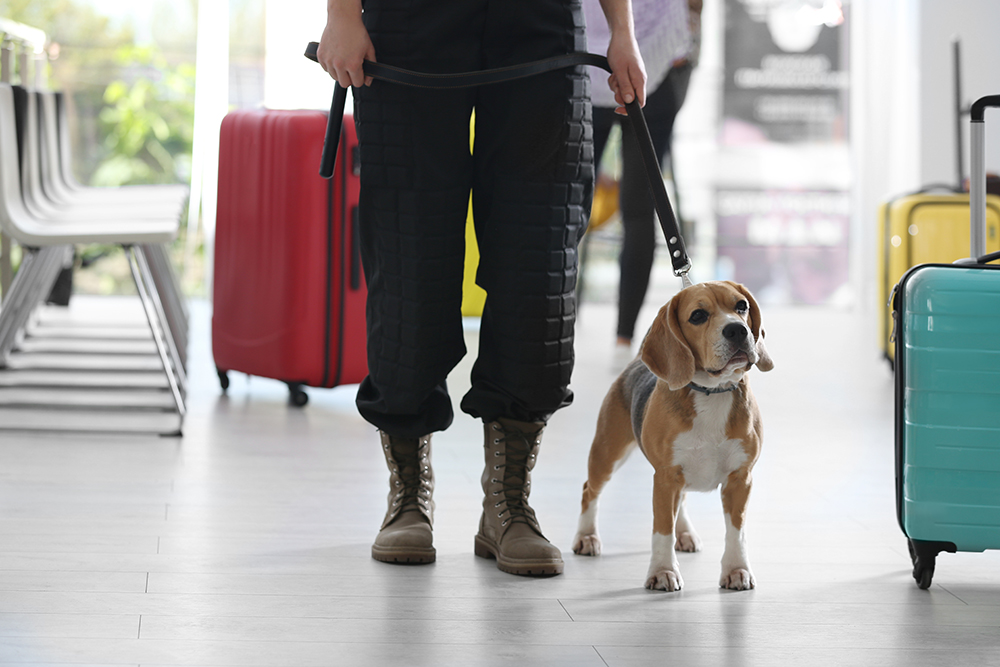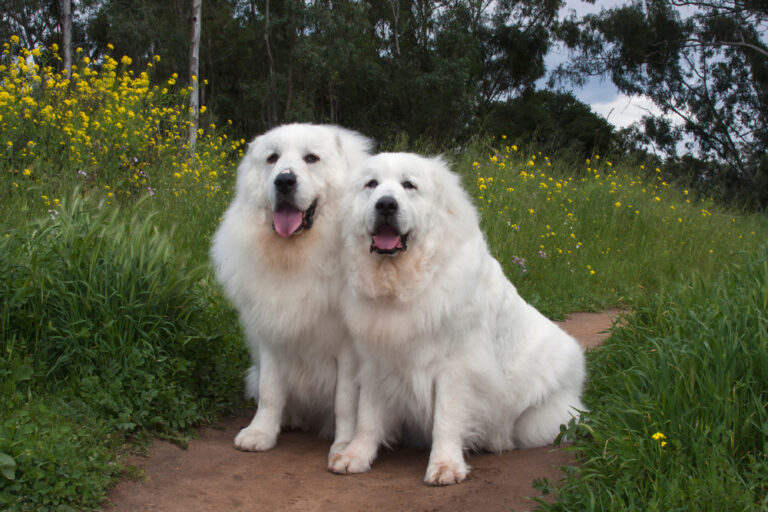- September 7, 2024
Can Police Dogs Smell Nicotine? Vet Verified Facts & Info – Dogster

The information is current and up-to-date in accordance with the latest veterinarian research.
While cigarette sales have been declining steadily for decades, vape technology is seemingly replacing one issue with another. Promising fewer health risks and more discretion, smokers have more reason and opportunity to use tobacco, forcing school administrators and property owners to find novel solutions.
Fortunately, nicotine is one of countless substances police dogs can sniff out with spectacular efficiency.

Can Police Dogs Smell Nicotine?
Trained detection dogs are adding tobacco products to their list of alerting smells, giving us a time-honored solution for a modern problem. As nicotine is not an illegal or controlled substance, the average police dog rarely needs to be trained to detect it.
Many private agencies, however, make nicotine one of their detection training specialties for clients who ban tobacco use on their properties. This can also be a useful resource for detecting and apprehending illegal imports or smuggling.
How Dogs Can Smell Traces of Nicotine
Although the nicotine in a lit cigarette isn’t easily detectable by humans, when it’s sitting in a vape cartridge or cigarette case, it’s no issue for a dog to sense it. Even without training, virtually every dog bears the unique physiology to capture and interpret the faintest chemical signals. Here’s a quick look at some essential facts about a dog’s power of smell:
- Dogs have up to 300 million scent receptors in their noses (versus only 6 million in a human’s nose)1
- A dog’s olfactory processing region of the brain is roughly 40 times larger than that of a human
- Dog nostrils have two air paths, with 12%–13% of air entering the upper pathway, leading to an olfactory region where odor molecules accumulate
- The vomeronasal organ in the hard palate captures additional chemicals for enhanced olfaction
- A dog’s sense of smell is up to 100,000 times better than a human’s2
A dog’s nose is so powerful that it can identify scents from centuries-old cadavers, internal diseases and stress, and even substances at the bottom of a lake. With this raw potential, it only takes targeted training to make a dog a dependable detection dog.

How Dogs Train to Detect Nicotine
Dogs notice millions of smells every day, but most don’t have any significance unless we make them meaningful. Dogs smell nicotine all the time. Yet, they’ll never try to alert us until we teach them what we want them to do and give them a good reason to do it.
Training a dog to detect and respond to nicotine is much like teaching any everyday command. You present the stimulus and mark and reward the desired response.
How Police Dogs Learn to Detect
When scent training on a substance like nicotine, handlers present an item or container bearing the scent to the dog. If the dog sniffs it, they get a treat. The process repeats numerous times to solidify the idea that alerting to that smell earns a reward.
As they get used to this process, the difficulty ramps up until the dog has to search for and track target scents amid various distractions. Handlers train a response signal, such as barking, sitting, or pawing at the object, that dogs will use to indicate they have found the source.
Detection dogs begin training at around 10–12 months. The proper temperament and obedience are essential for success, so detection training starts with a dog that has had a strong foundation of training and has passed their unruly juvenile stage. This ensures it’s enjoyable and suitable for the dog.

Where Are Police Dogs Used to Detect Nicotine?
Detection dogs come with a substantial upfront cost and ongoing expenses, so organizations must be cautious about how they apply them. For police, nicotine detection has little use in most arenas.

Nicotine Detection in Schools
Schools aiming to stem underage tobacco use may consider detection dogs to look for addictive nicotine-based products in lockers, backpacks, and clothing. Many police and sheriff’s offices work with school districts and institutions through school resource programs, which often involve an on-duty officer.
A police nicotine detection dog may be an extension of this, and many law enforcement groups share the funding burden with schools to make it happen. School administrators value nicotine-detection dogs for curbing cigarette and vape use and helping them reduce many other risks.
As they search for nicotine-based items, school officials often also find alcohol, drugs, and other illicit materials, yielding even more value from these dogs.
Private Nicotine Detection Dogs
Schools may also receive grants and use their budget to acquire detection dogs outside the police. Many agencies and private investigation firms use detection dogs for drugs, explosives, and prohibited substances, including nicotine. Some dogs learn to alert to multiple scents, such as OTC medications, drugs, and gunpowder.
Although these agencies can’t assist in arresting offenders, handlers and dogs can at least point supervisors toward illicit materials.
Illegal Nicotine Products
Outside of school, police dogs are detecting tobacco in consumer settings. UK police have taken on nicotine detection dogs in recent years to investigate retailers selling unregistered cigarettes and vape products.
Disposable vapes have exploded in popularity since 2021. The ongoing problem of illegal cigarettes has caused Trading Standards officers to ramp up their crackdown. Counterfeit products often contain extreme nicotine levels or use large containers, promoting excessive use. With no standards in place, many have hazardous chemicals like lead, rat poison, and asbestos.
The risks are as high as the rewards for retailers and suppliers pushing the products. Most have become highly innovative in concealing them from authorities. Detection dogs now play a central role in finding those sophisticated hiding spots. They have been the backbone of several recent raids nationwide, uncovering hundreds of thousands of pounds worth of contraband.

Final Thoughts
Tobacco may be legal, but the rise in vape popularity is creating new concerns. Today, authorities are finding more reasons to use nicotine-detection dogs to keep smokers and youths safe. Advances in technology and efforts to hide prohibited substances still prove no match for tried-and-true scent detection.
With targeted training to smell nicotine, police dogs are providing newfound peace of mind for schools, parents, and consumers.
Featured Image Credit: Africa Studio, Shutterstock
Tags
What do you think?
Related Articles

New Puppy Checklist: Gear You’ll Need for Your New Dog
Getting a new puppy is really exciting, but before you welcome them home, it’s important to prepare your space for them. Since puppies need a

How Big Do Mini Poodles Get? Vet Reviewed Average Weight & Growth Chart – Dogster
The information is current and up-to-date in accordance with the latest veterinarian research. Learn more » When you buy a Miniature Poodle, you might not

How Old Is 5 in Dog Years? Vet-Approved Guide to Each Size of Dog – Dogster
The information is current and up-to-date in accordance with the latest veterinarian research. Learn more » A common method for calculating a dog’s age is

How Big Do Great Pyrenees Get? Average Weight & Growth Chart (Vet-Verified) – Dogster
The information is current and up-to-date in accordance with the latest veterinarian research. Learn more » Size can be a huge determining factor when you

